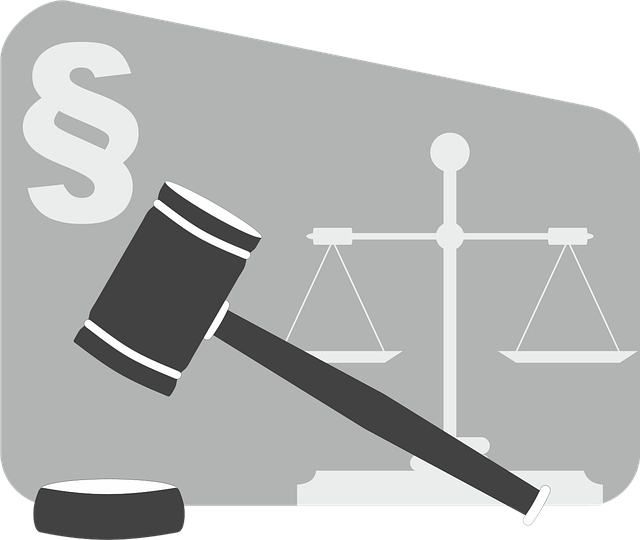Securities class actions offer investors a collective tool to seek justice for financial losses due to misconduct. These cases provide various forms of compensation, including actual and punitive damages, restitution, and injunctive relief, tailored to securities fraud's unique nature. By banding together, affected investors can aim for full dismissal of charges, efficient resolutions, and significant recoveries, similar to personal injury cases. The process involves filing a complaint, hearings, discovery, class certification, and negotiations or trials, ultimately seeking justice and secure compensation for aggrieved parties.
“Securities Class Actions: Navigating Legal Battles for Individual Investors
In today’s financial landscape, protecting investor rights is paramount. This comprehensive guide delves into the world of securities class actions, where investors band together to fight for justice and compensation. We explore key aspects, from understanding these legal proceedings to deciphering various types of damages, participant eligibility, and the step-by-step process.
Furthermore, we uncover strategies to enhance compensation recovery, focusing on effective approaches—a crucial aspect, especially when seeking Types of Compensation for Personal Injury within class action suits.”
- Understanding Securities Class Actions
- Types of Damages in Class Action Suits
- Who Can Participate in a Securities Class?
- The Process: From Filing to Settlement
- Strategies for Effective Compensation Recovery
Understanding Securities Class Actions
Securities class actions are a type of legal proceeding where investors come together to hold a company accountable for violations of federal securities laws. These actions allow for collective enforcement of rights, providing a powerful tool for justice in high-stakes cases. By pooling their resources and expertise, affected investors can seek compensation for economic losses incurred due to misconduct or misrepresentations by a respective business.
Understanding the mechanics behind securities class actions is crucial when considering potential remedies for personal injury stemming from financial transactions. While these cases often involve complex legal strategies, they aim to provide various forms of relief, including monetary damages, equity restatements, and even injunctive orders. The focus on types of compensation goes beyond traditional personal injury awards, as it explores the unique financial landscape of securities fraud and its impact on investors’ portfolios.
Types of Damages in Class Action Suits
In securities class action suits, individuals or groups who have suffered losses due to alleged misconduct can seek various forms of damages. These typically include economic losses incurred from the purchase or sale of securities at inflated prices, as well as any additional costs or expenses arising from the deception. The goal is not only to compensate victims but also to deter future instances of such fraudulent activities.
Among the potential types of compensation for personal injury in these cases are actual damages, which cover the direct financial harm, and punitive damages aimed at punishing the defendants for their misconduct. Additionally, plaintiffs may seek restitution, a form of recovery that returns ill-gotten gains to the victims, and injunctive relief to prevent further violations. A successful class action can lead to significant recoveries, offering a measure of justice for those affected by white-collar crimes, and even the possibility of a complete dismissal of all charges or avoiding indictment in certain cases.
Who Can Participate in a Securities Class?
In securities class actions, anyone who has suffered losses from a specific investment or company can participate as a member of the class. This includes individuals, pension funds, and other institutional investors who bought the same securities during a specified period. The class action lawsuit seeks to provide relief for these investors through various forms of compensation, akin to types of compensation for personal injury claims.
Unlike individual lawsuits, where each plaintiff may have unique circumstances and damages, class actions aim for a complete dismissal of all charges against the defendant. This collective approach allows for a more efficient resolution, often resulting in an unprecedented track record of successful recoveries for the affected philanthropic and political communities.
The Process: From Filing to Settlement
The process of a securities class action begins with the filing of a complaint by an injured party or a group of investors who have suffered losses due to alleged misconduct. This legal action aims to hold the responsible entities accountable and provide redress for the harm caused. The case then progresses through several stages, from preliminary hearings to discovery, where both parties gather and present evidence. During this period, plaintiffs may seek different types of compensation for personal injury, including monetary damages, injunctive relief, or other forms of restitution.
As the litigation advances, a key milestone is the motion for class certification, where the court decides if the case can proceed as a class action. This is a pivotal step, especially in high-stakes cases, as it determines the potential impact and scope of any future settlement or winning challenging defense verdicts. If certified, the matter moves towards settlement negotiations or trial, with the ultimate goal of resolving the dispute across the country and ensuring justice for the affected investors.
Strategies for Effective Compensation Recovery
In securities class actions, effective compensation recovery is paramount for investors who’ve suffered losses due to corporate misconduct. One strategic approach involves pursuing Types of Compensation for Personal Injury that go beyond monetary damages. This can include seeking restitution, which returns ill-gotten gains to the victims, and injunctive relief, which halts ongoing harmful activities. Additionally, class action plaintiffs may aim for structural changes within the respective business to prevent future violations, a strategy proven effective in high-stakes cases where jury trials are a common outcome.
Another key tactic is aggregating claims from numerous investors, thereby enhancing the overall value of the case and incentivizing legal representation. This collective approach not only amplifies the potential recovery but also ensures that each investor’s voice is heard. By combining these strategies, class action attorneys can navigate the complexities of high-stakes cases and secure substantial compensation for the aggrieved parties.
Securities class actions offer a powerful mechanism for investors to seek justice and recover losses incurred due to corporate misconduct. By understanding the intricacies of these legal proceedings, from recognizing various damages available to knowing who can participate, individuals affected by securities fraud can navigate this process effectively. The ultimate goal is to secure appropriate Types of Compensation for Personal Injury through strategic approaches that ensure fair recovery. This comprehensive guide illuminates the path towards achieving justice in the complex landscape of securities litigation.






